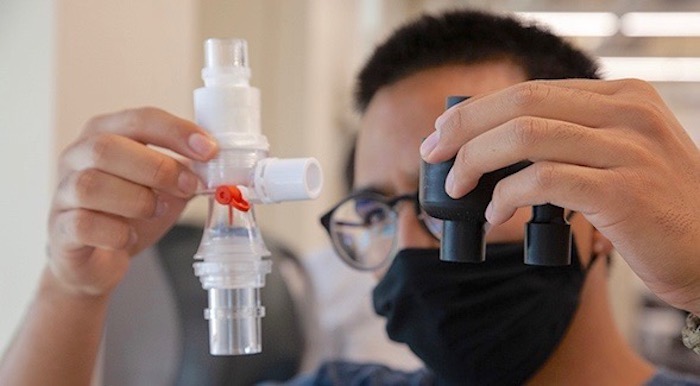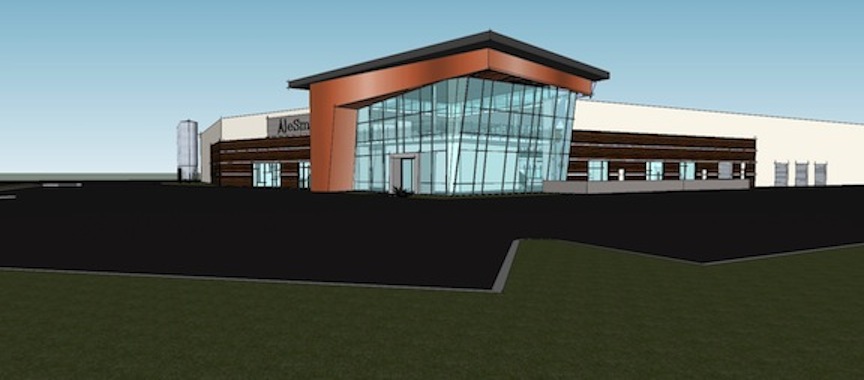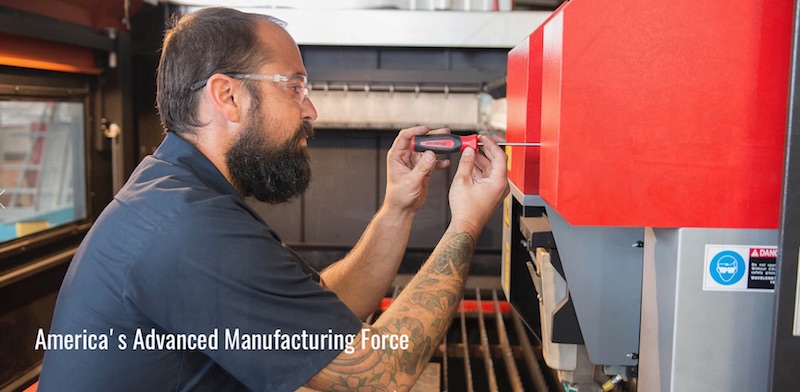Daily Business Report-Oct. 29, 2020
Ener Arvizu-Muñoz with a ventilator exhalation valve he designed. Arvizu-Muñoz is a part of engineering professor Kevin Wood’s lab, which has been working to build a low-cost ventilator. (Photo courtesy of SDSU)
San Diego State University faculty lead
collaborative COVID-19 research efforts
By Kellie Woodhouse | SDSU
San Diego State University has become the site for dozens of COVID-19 research projects, an urgent response to the pandemic that is probing its impact on individuals, health care professionals and communities while looking ahead to possible interventions and solutions.
More than 40 COVID-related projects span all seven of the university’s academic colleges as well as SDSU Imperial Valley.
Much of the work draws upon SDSU’s deep roots in the community, allowing investigators to collaborate with local government agencies, health care providers, medical companies and nonprofits and ensure their work has the widest reach and greatest impact possible.
“During the pandemic SDSU faculty have risen to the occasion and leveraged their expertise, connections, scholarship and research interests to shed light on the coronavirus and support vulnerable communities, especially those here in San Diego,” said Hala Madanat, interim vice president of research and innovation and the leader of multiple COVID-19 research endeavors.
The vast array of projects considers how the virus affects the body and lingers in the environment; how the pandemic has affected health care, under-resourced communities and mental health; and how schools, government agencies and individuals have responded to the crisis.
“SDSU faculty have faced the challenges of COVID-19 without hesitation,” said President Adela de la Torre. “We have the expertise, the critical connections, and the tenacity to confront major challenges head-on.”
Click here for a description of SDSU’s research projects
_________________________________________________
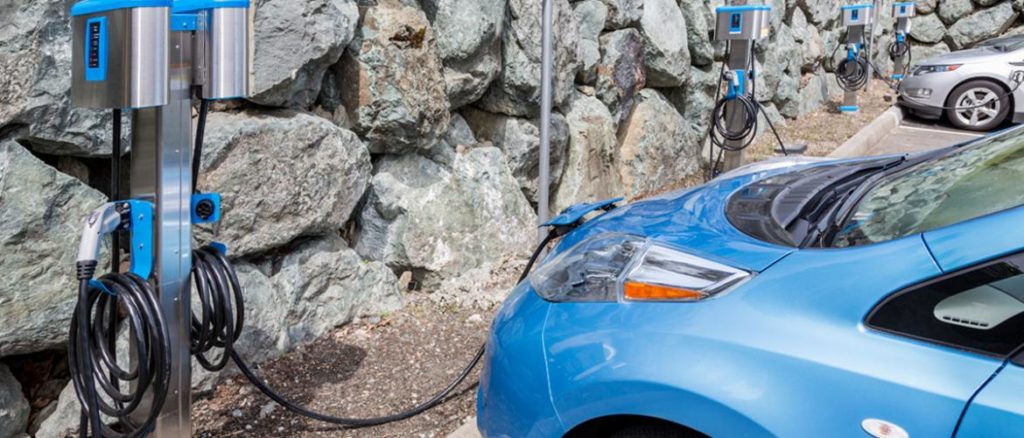
State launches electric vehicle charger
rebate project in San Diego County
The state is launching a rebate project designed to increase public access to electric vehicle (EV) charging throughout San Diego County with $21.7 million in funds over the next three years for local businesses, multi-unit dwellings and other properties.
The California Electric Vehicle Infrastructure Project (CALeVIP) is part of a statewide effort to encourage consumer EV adoption through making public charging more widely available. It is funded primarily by the California Energy Commission and administered by the San Diego-based Center for Sustainable Energy.
Qualifying properties can apply for rebates to help cover EV charging equipment purchases and installation costs, with increased funds for sites in disadvantaged and low-income communities and at multifamily housing. Applicants can receive up to $6,000 for a commercial-grade Level 2 EV charger and up to $80,000 for a high-powered DC fast charger. A minimum of 25 percent of the project’s funds will be distributed in disadvantaged and low-income communities in the county.
Prospective applicants can learn about plug-in EV charging, how to plan installations and the rebate application process by visiting the website CALeVIP.org. A recorded webinar about the San Diego County project is available online.
Level 2 chargers deliver 15-35 miles of electric driving range per hour of charging and are ideal for locations where drivers are parked for a few hours. DC fast chargers can power most EVs and provide over 100 miles of driving range per hour of charging, which is suited for major destination areas and along travel corridor
_________________________________________________
San Diego Angel Conference accepting
applications from startups looking for funds
San Diego Angel Conference, a program that activates accredited angel investors and engages promising early-stage companies that drive the innovation ecosystem, is accepting applications from startups looking for funding, as well as from first-time and experienced angel investors interested in building their investment portfolios. The application deadline for entrepreneurs is Dec. 16, and investors begin reviewing deals in January.
With about 100 early-stage companies vying to be selected each year and an estimated $500,000 going to the winner and runners up in varied award amounts, SDAC has become one of the largest angel investor programs in the country.
Through a series of free workshops, SDAC provides the education and mentoring startups need to understand what angel investors look for; how to communicate with investors, and how to negotiate the deal.
Accredited angel investors can participate in the SDAC fund for a minimal investment of $6,000. Ideal for first-time angel investors, the SDAC program provides a low investment threshold along with training on how to spot investment-worthy startups and conduct due diligence.
_________________________________________________
North County Biotech Laboratories adds
more scientific equipment to its facility
North County Biotech Laboratories(NCBL) is adding more scientific lab equipment to its facility. Equipment includes Thermo Fisher HeraCell 160i CO2 incubators, Labconco biosafety cabinets, Revco and Forma ultralow freezers, Eppendorf centrifuges, Norlake refrigerators, Ohaus balances, and more. The equipment is available to tenants of NCBL in its single-tenant labs. No additional equipment fees are required, and maintenance is included.
NCBL said it provides to tenants the fundamental equipment needed for life science research: all new or almost new, clean, and in perfect working condition. Brands include Thermo Fisher, Labconco, Ohaus, Eppendorf, Edwards, Panasonic, Drummond, Beckman, Gordinier, Zeiss, Hoefer, Wyatt Technology, Scientific Products and more.
NCBL is designed for life science companies looking to expand research with an auxiliary lab during COVID-19 restrictions, while new facilities are built or when concepts need quick proof, free from potential security risks and cross-contamination.
_________________________________________________
ARCpoint Labs of North San Diego
adds 2 additional COVID-19 tests
ARCpoint Labs North San Diego is augmenting its menu of COVID-19 tests for businesses and consumers with two additional molecular tests: The SalivaDirect and Abbott ID Now tests. These two tests add more capabilities for ARCpoint Labs to test people at various stages of coronavirus infection.
The SalivaDirect Test is a non-invasive, molecular test for the qualitative detection of COVID-19 infection, being offered by ARCpoint via drive-through at car-side.
In addition to offering the rapid antigen test by Quidel, ARCpoint Labs will soon also provide the rapid molecular test by Abbot, ID Now. The ID Now test is purported to be one of the most reliable, fastest molecular tests on the market, according to Abbott, and can produce results from a nasal swab in as few as 15 minutes
_________________________________________________

Cash blitz: Who’s spending the most to influence
your vote for California’s Legislature?
CalMatters
State law caps the amount donors can give to a legislator’s campaign — but these special interests can spend as much as they like mounting their own campaigns to praise or trash candidates. And the money interest groups are pouring into these “independent expenditure committees” has reached dizzying heights.
So far more than $31 million of this unrestricted political spending has been pumped into California’s Assembly and Senate races.
“The spending is focused down on just a handful of competitive races but the numbers are enormous,” said Doug Morrow, who tracks spending with his political research group DSM Analytics.
Independent expenditure committees also tend to play hardball. If candidates go too negative, they risk turning off voters. But a committee with a nebulous name — say, the “Coalition to Restore California’s Middle Class” or “Keeping Californians Working” — can afford to offend whomever they like.
For an exploration of the most lucrative spenders on these committees — and what they want out of the Capitol, click here
_________________________________________________
Crew San Diego hosts virtual discussion
on long-term impacts of COVID-19
CREW San Diego, a membership organization dedicated to promoting, educating and supporting professionals in the field of commercial real estate, will host a virtual discussion on the long-term impacts of the COVID-19 pandemic on design, use and perceptions of public spaces once restrictions have been lifted. A panel of experts from San Diego’s urban, landscape and architectural design communities will address:
- Hypothetical predictions on the community’s relationship with public space
- Update on government ordinances and restrictions
- Flex space and modular designs of large gathering spaces
- Transformation of public space design and accessibility
Date: Thursday, Oct. 29, 2020
Time: 11:45 a.m. – 1:15 p.m.
Price: Members and Students: Free | Non-Members: $25
Where: Zoom info sent upon registration
_________________________________________________
La Jolla Institute professor receives
$523,914 for COVID-19 research
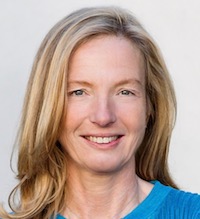
COVID-19 patients around the world are experiencing lasting cardiovascular issues, even after they’ve recovered from other symptoms. In fact, one in four COVID-19 patients suffers from damage to the heart muscles, and problems with blood clotting and inflammation have been reported even in elite athletes.
“We’re concerned that there could be permanent or long-term changes in these patients,”says Catherine “Lynn” Hedrick, Ph.D., professor at La Jolla Institute for Immunology (LJI).
Hedrick recently received $523,914 in funding from the National Institutes of Health’s National Heart, Lung, and Blood Institute (NHLBI) to study how immune cells may contribute to cardiovascular problems in COVID-19 patients. Hedrick’s work will focus on how the SARS-CoV-2 virus may affect monocytes, a type of immune cell in the bloodstream.
“We know that even people with mild COVID-19 cases have changes in their monocytes,” says Hedrick. “We want to know why.”
_________________________________________________
Michelle Hill named chief people officer
for Sunrise Management
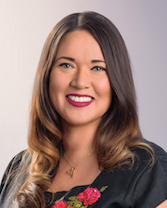
San Diego-based Sunrise Management, which has specialized in the management of residential real estate since 1978, announced the appointment of Michelle Hill as its new its chief people officer.
A seasoned human resources executive, Hill was most recently the human resources director at Legoland California Resort, where she was charged with developing and executing human resource strategy in support of the overall business and strategic direction of the organization. In her new role, she will be a core part of the Sunrise Management executive team, overseeing compensation/benefits management, organizational development, strategic planning, employee retention/relations, risk management, talent acquisition, training/development and much more.
With nearly 20 years of human resources experience, Hill was also vice president of human resources at San Diego-based ANI Inc. and has held several senior level positions within human resources positions at BeyondTrust, St. Joseph’s Hospital and Medical Center in Phoenix and Civica Development in Goodyear, Ariz.
Hill earned a Master of Science degree in leadership from Grand Canyon University and a Bachelor of Science degree in business management from the University of Phoenix. Additionally, she holds a graduate-level certificate in human resources from the University of Phoenix.
_________________________________________________
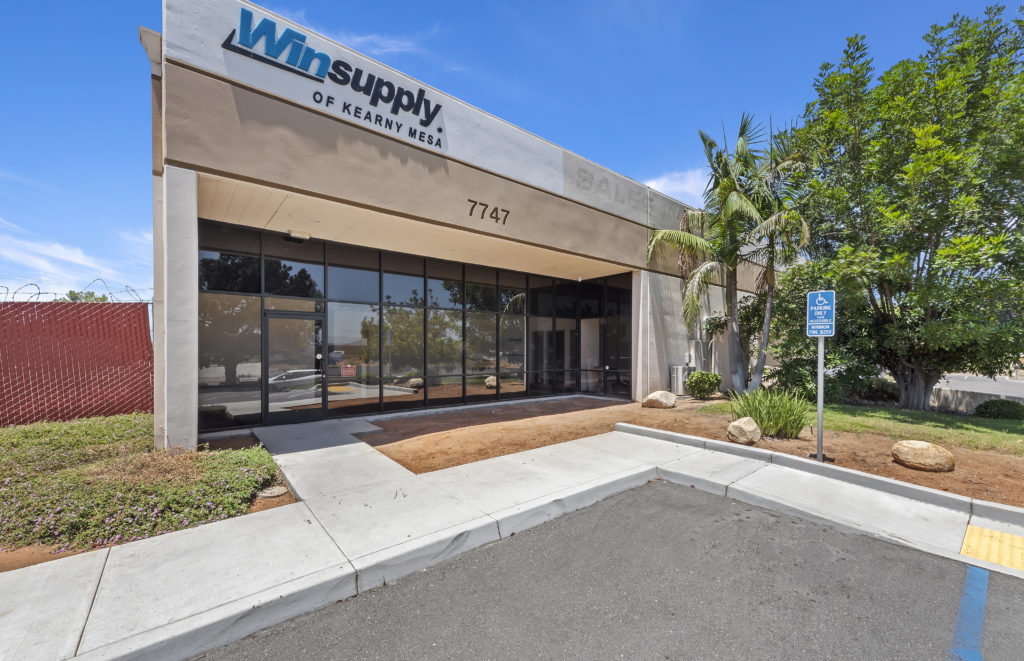
Kearny Mesa industrial property sells for $4.33 million
CBRE announced the sale of an industrial property in Kearny Mesa to Seattle-based construction company BNBuilders for $4.33 million.
Located at 7747 Ostrow St., the 16,380-square-foot, freestanding building was originally built in 1979 on a 1.1-acre site. The property features a fenced yard, two dock-high positions and two grade-level loading doors. The building sits just north of the interchange between I-805 and SR 163.
CBRE’s Ryan Sparks and Bill Dolan represented the seller, Wholesale Property Co. which operated as Winsupply, one of the nation’s largest wholesale distributors. The buyer was represented by an outside firm.
Net absorption in the San Diego industrial market in the third quarter of 2020 was the highest since the third quarter of 2018, reaching more than 1.2 million square-feet, according to a CBRE research report. Total vacancy fell 30 basis points (bps) to 5.1 percent and total availability fell 30 bps to 7.7 percent.
_________________________________________________
San Diego Art Institute announces re-opening plan
The board of directors of the San Diego Art Institute (SDAI) announced that it is financially and operationally ready to reopen its gallery space in Balboa Park before the end of the year. Initially, the museum will be open for a few days per week by appointment. SDAI will be following health and safety guidelines from county and state government officials.
SDAI’s “Illumination” exhibition, showcasing 21st century interactions with art, science and technology, which debuted in February 2020 and had to close abruptly in March, will be on view. Reservations will soon be available on SDAI’s website, sandiego-art.org.
“The board has developed a productive and financially sound plan to re-open the gallery with approved safety measures in place,” said Karen Gilbert, board chair. Additionally, SDAI has upgraded its HVAC system, in coordination with the remodel of the adjacent Mingei Museum.
Gilbert also announced that Sarah Trujillo-Porter has been retained as operations manager to guide the reopening and administer SDAI’s online programming. In April SDAI instituted RAM (Regional Artists Market), a curated online market featuring functional items, such as masks, scarves, bags, cards, prints and apparel. By offering the participating artists 70 percent of each sale, RAM has been very successful at building economic resiliency among the regional artist community.

